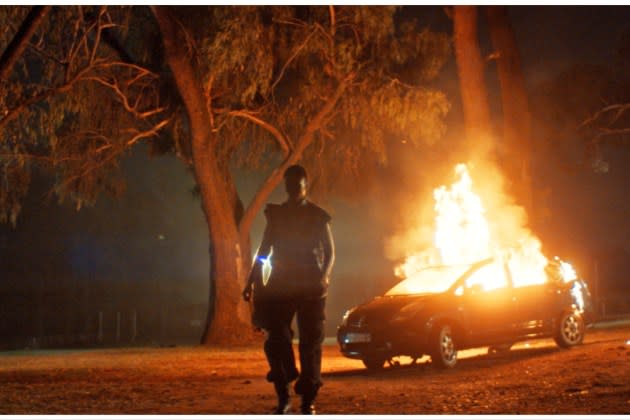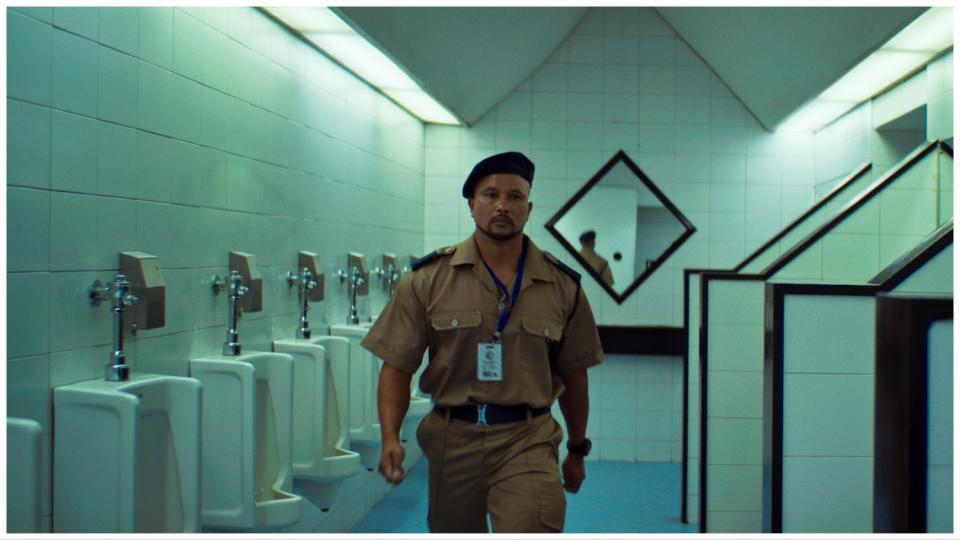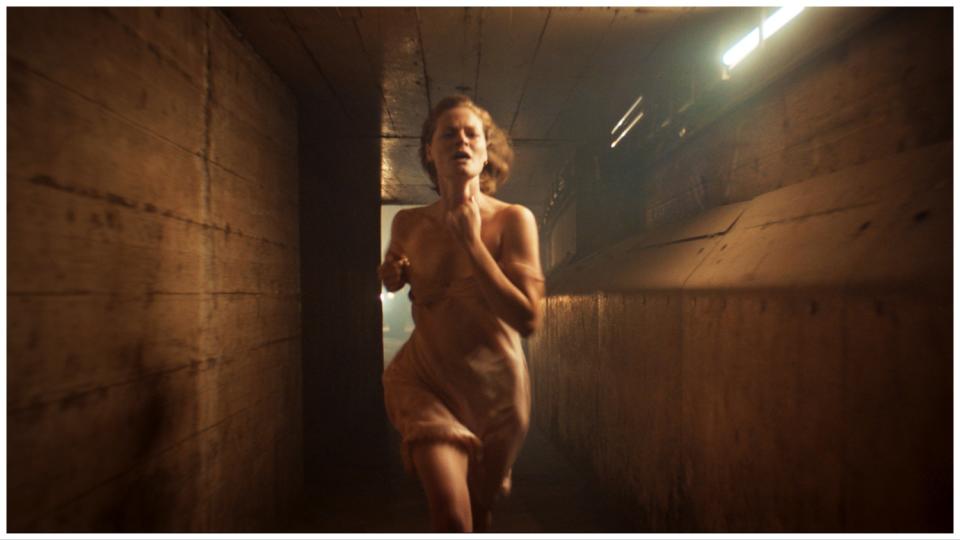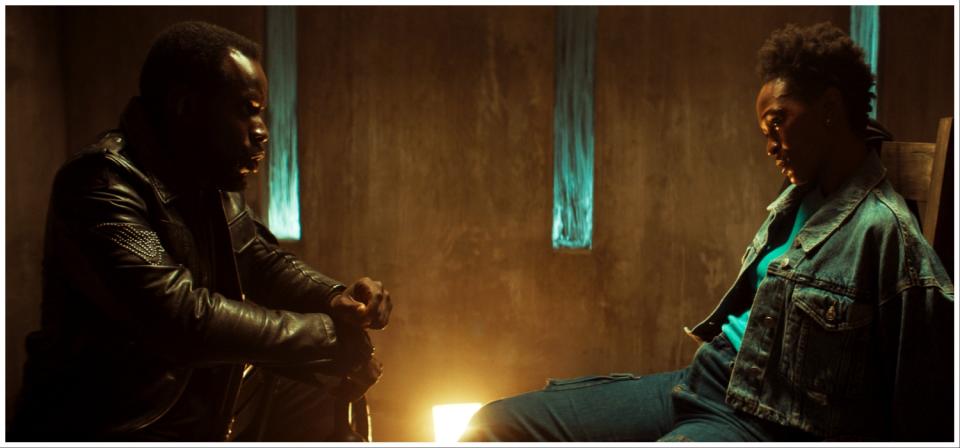Ian Gabriel on Why ‘Death of a Whistleblower’ Is a Salute to Journalists in an Era of Manufactured Reality
- Oops!Something went wrong.Please try again later.

The nights were dark and stormy for many of the days on the five-week call sheet of “Death of a Whistleblower” but although South African director Ian Gabriel personally detests night shoots, he pushed through since his latest conspiracy thriller about cover-ups and a journalist’s dogged pursuit of the truth simply wouldn’t have felt the same shot in sunshine.
“There’s always been a struggle for the truth in South Africa — in the past, and now,” says Gabriel, who also came up with the story.
More from Variety
His taut topical political thriller, produced by Tshepiso Chikapa Phiri for Known Associates Entertainment, will have its African premiere on Feb. 28 at the Joburg Film Festival with a same-day release on Amazon’s Prime Video. Pic premiered at the Toronto Intl. Film Festival last fall.

Starring Noxolo Dlamini, Irshaad Ally, Standiwe Kgorore, Deon Coetzee and Kathleen Stephens, the film is a homage to whistleblowers, and follows an investigative journalist who, with the insider help of a whistleblower, tries to expose the state capture of a corrupt South African security group that’s fuelling warfare in Africa and beyond.
“We’ve solved some of our struggles but there are some we haven’t and we’ve just graduated from the one to another. The film takes place between two fictional crimes: the one that we see right at the beginning happens in 1995, and the other, the bombing of a town in Yemen where they use chemical weapons.”
The notorious Wagner Group, Russia’s state-funded private army operating in parts of Africa, also pops up on a TV screen in the background in the film — something that’s deliberate, Gabriel explains.
“South Africa and Africa are a testing ground for a lot of truths and a lot of problems in the world. One of the bad things about African history has been colonialism. Now we have new forces coming to Africa, saying they’re against colonialism, like the Wagner Group, when it moves into Africa and chooses a side. And it’s usually choosing a side where it gets mineral rights and military concessions in exchange for having people on the ground, often supporting dictatorial regimes.”

About the numerous night scenes, Gabriel says, “It’s to convey the mood — the kind of darkness and anxiety.”
“I wanted to have a lot of night scenes — but one thing I hate is shooting through the night. I get exhausted; the actors get exhausted. We tried to shoot days into nights — very often we’d call at 12 midday and wrap at 12 midnight so at least we only had half a night of work. That in itself was a challenge.”
Gabriel explains that the film shot in Johannesburg “salutes journalists and whistleblowers and the people who are talking truth now because there’s a lot of manufactured reality in the world at the moment.”
“There’s also an enormous number of journalists who are dying — many on the frontlines while others are executed.”
“There’s a note at the end of the film of the number of whistleblowers who have died in South Africa in recent times. They’ve all died for telling the truth about something. Often it’s not political — it’s about corruption and money. On a level there’s a gangster state in South Africa in which gangsters are able to have quite a lot of control over situations and which have led to a lot of whistleblower deaths in the country — it’s something we need to fight against.”
“I wanted it to cut close to reality because it’s a real concern for South Africa. This concern around corruption is a new reality that we have to face in South Africa, so I wanted to tell something that cut very close to the truth.”
Gabriel also directed 2023’s “Runs in the Family” for Netflix, in which an Indian father in South Africa takes his transgender son — played by Gabriel’s own son Gabe — on a road trip.
As the first director of color to open an independent, director-owned film production company in South Africa under his Giant Films banner, Gabriel says a lot of progress has been made in transforming South Africa’s film biz with both his recent films, which had over 50% Black heads of departments.
“There are certain departments, for instance production design — it’s very hard to find a Black head of department because there’s not enough training happening at the ground level. In sound, grips and lighting there’s quite a lot of Black personnel in those roles. So there are certain areas that need more development than others. The production department is getting much better in Black representation and there are also a lot of talented Black directors, which is great.”

Gabriel says the proliferation of streamers — with development budgets for their own original content — now allows for more varied stories to be brought to screen that traditional South African broadcasters might shy away from.
“The fact that I could do ‘Runs in the Family,’ written by my son who is transgender — it’s a little bit of my Indian diaspora past and his transgender future fused together in one story — that would never have been made had it not been for the support of Netflix.”
“‘Death of a Whistleblower’ has Prime Video and e.tv behind it — so we’re very fortunate. There’s much more ability to make films now.”
Best of Variety
Sign up for Variety’s Newsletter. For the latest news, follow us on Facebook, Twitter, and Instagram.

